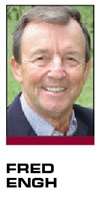As much as I love football, and I was a high school head coach before founding the National Alliance for Youth Sports in 1981, I wouldn’t risk my kids playing today with all the information out there about the long-term effects of concussions. But the concussion issue, and all the talk it has generated, is minor compared with the real issue that I have seen damaging young lives for more than 30 years now: the people who are coaching kids. I’m talking about the guy you trust with your child who is out there for a few hours a week, out of your sight, pretending that they know how to coach children.
Before everyone gets upset at me seeming to brand all youth football coaches as people who are football monsters, let me say: I’m not. There are many decent coaches who “get it” and try to do their best for kids. But I can also tell you that after many years of working closely with recreation agencies nationwide, youth football has some of the worst individuals you could find on the field with kids: the macho, kick-ass kind who never made it in football and who couldn’t care less about the safety of the kids. They are about winning at whatever cost. They are damaging kids physically, emotionally and psychologically by taking them and making them pawns in their little game of “Hey, I’m a big-time football coach.” They’re the guy sitting next to you screaming obscenities at high school, college and pro games like they know more than the coaches on the field.
If you think they take seriously the concussion training that’s provided by most leagues today, then you have your head in the sand. These are the people who might read this column and say, “What a wuss. It’s his kind that are waging a war on football.” They justify anything they do, good or bad, because they are volunteers and think that without them there would be no program. They are on the field with their kid because, in their mind, their kid is well on his way to the pros.
All one would have to do is watch the show “Friday Night Tykes” to understand my point. Here’s what one person commented online on the upcoming decision about whether the show might be canceled:
“I think that friday night tykes should not be canceled because it teaches the young kids to compete and to sacrifice there life to football so they actually have a chance at the pros!! I understand that there only 8 and 9 but its better to get it in there head now while there still young”
Yes, the person actually said “sacrifice” their life. And the scary thing is that there are actually a whole bunch of people reading this who are saying, “And your point is?”
A few years ago, I was interviewed for a segment on HBO’s “Real Sports.” When the host finished the interview, he asked me if there were any youth football programs going on that he could use to make my point. I told him he could pick one out of many going on and I’d bet he would be very happy that he got what he wanted. Sure enough, he called me the next day to say, “I owe you one.”
When the show aired, it focused on a football coach with a group of 10-year-olds. I cringed when I saw the coach grab a kid by the face mask, jerking his head around like he had a hold of a wild animal on a leash and stood screaming at the kid because he missed a block. I’ve seen this type of behavior hundreds of times. I once had a youth football coach confess to me that he actually broke his 10-year-old star quarterback’s arm. He assumed that because his quarterback was complaining about his shoulder hurting after a big hit that it could be easily fixed, so he put his fist under his armpit in an effort to put the ball of the shoulder back into the socket. As he jammed the arm down, the quarterback passed out. They rushed him to the hospital, only for the coach to find out the next day that the real diagnosis was that his arm had already been broken midway between the shoulder and the elbow. In brief, he completely broke the kid’s arm. Over the years, I’ve seen far too many examples of the same type of behavior.
Football is here to stay, period. But what needs to happen in youth football is for local communities, which provide fields for youth play, to join the many youth sports organizations that provide training for youth football coaches and establish and enforce a code of conduct that says to those who violate the code: “You’re gone.”
Fred Engh (fengh@nays.org) is founder and president of the National Alliance for Youth Sports.




